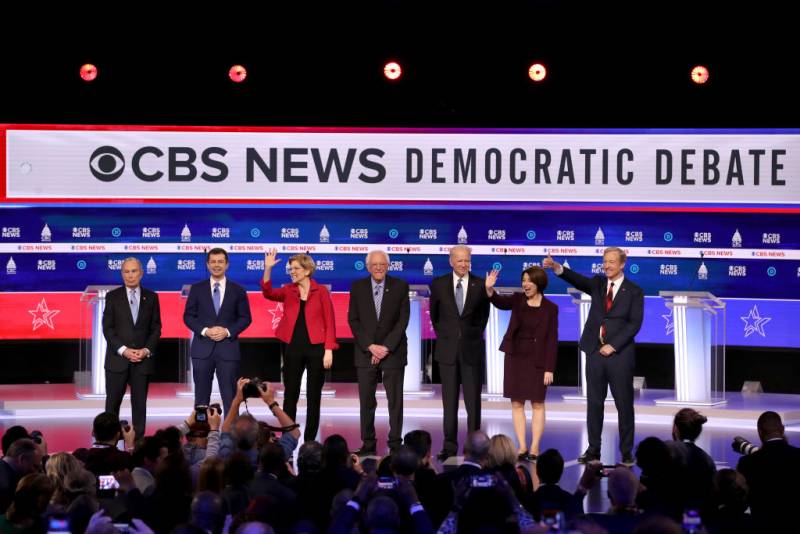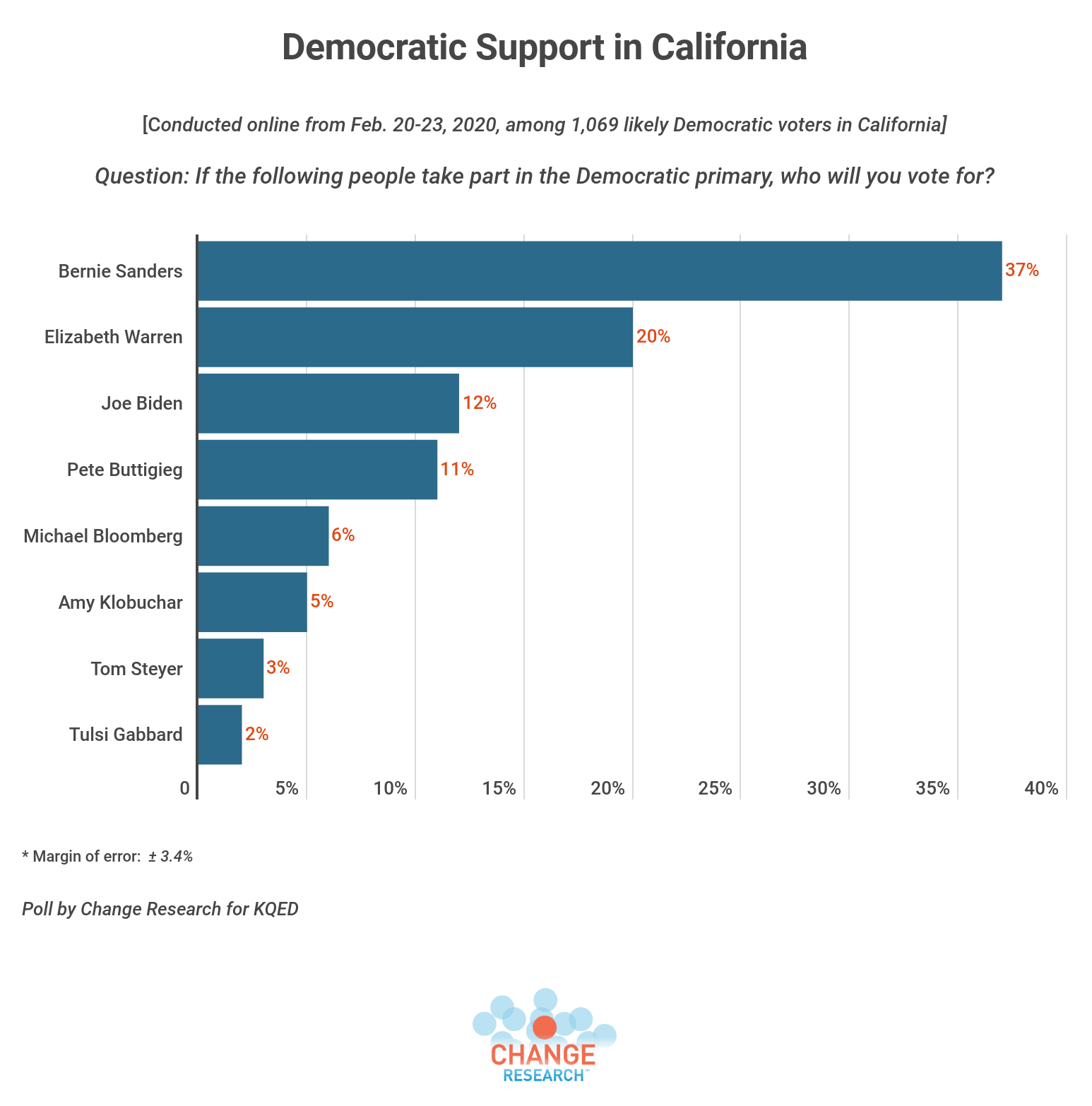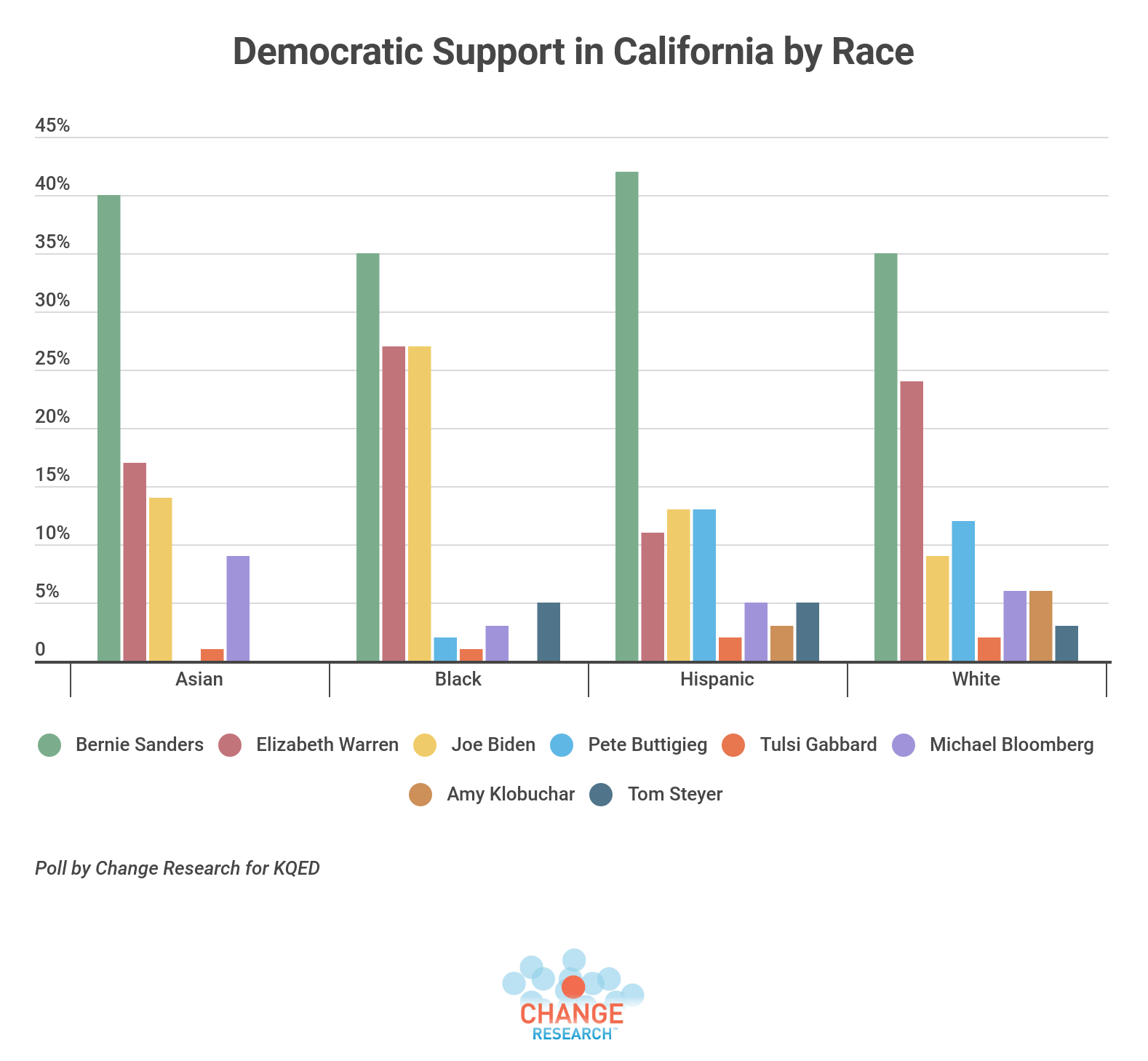On the strength of support from voters across the spectrum, Vermont Sen. Bernie Sanders is clearly the one to beat in Tuesday's presidential primary in California, according to a new Change Research poll commissioned by KQED.
After impressive showings in Iowa, New Hampshire and especially Nevada, Sanders is the top choice of 37% of likely Democratic primary voters. He's trailed by Massachusetts Sen. Elizabeth Warren with 20% support, former Vice President Joe Biden with 12% and former South Bend, Indiana Mayor Pete Buttigieg, with 11%.
“California is feeling the Bern, but don’t count Warren supporters out yet," said Pat Reilly, Change Research founder. "Our poll echoes national polling that shows refreshed momentum following Warren’s strong Nevada debate performance. Warren is also most voters' second choice."
Billionaire Michael Bloomberg, whose ubiquitous campaign ads have flooded California airwaves for weeks, is fifth in the poll with 6% of the vote. Behind him are Minnesota Sen. Amy Klobuchar with 5% and Tom Steyer, the only Californian still in the race, was at 3%.
Following a disastrous performance in his first debate last week where he was put on the defensive over treatment of women at his company and his previous support of stop-and-frisk policing tactics, the former New York mayor also has by far the highest negative ratings among the field, with a whopping 63% of voters rating him unfavorably. That gives him a net favorable rating of minus 42, compared with Sanders who has a net favorable rating of plus 48.
Bloomberg's negatives in the poll are only slightly lower than those for PG&E, the giant California utility whose equipment has been blamed for deadly wildfires in recent years.
Sanders and Bloomberg have one thing in common — the intensity of their support.
"Although Sanders and Bloomberg see themselves as opposites, their supporters share antipathy toward supporting a Democrat that isn’t their first choice, with a whopping 28% of Sanders supporters and 27% of Bloomberg supporters saying they would consider a third party candidate if their candidate does not win the nomination," Reilly said.
"Warren supporters are most inclined to support whomever the Democratic nominee is," she added.
Sanders continues to show tremendous strength among California’s Latino voters, with 42% saying they plan to vote for him, compared with 13% who say they'll vote for Biden or Buttigieg. Sanders also dominates among the state’s African American voters, where 35% support him compared with 27% who prefer Warren and Biden.
Thad Kousser, who chairs the political science department at UC San Diego, says Sanders is benefiting from his statewide run four years ago.
"He's got a set of ground troops all over California," said Kousser. "And I think that name recognition and the roots that he has put down politically in the state explain why he's California's clear front-runner today."
In the last KQED/Change Research poll conducted in late January, Sanders had opened up a 14-percentage point lead over his closest rival, Warren. In that survey, Sanders was the choice of 30% of likely voters, with Warren second at 16%, followed by Biden at 15%, Buttigieg at 8% and Andrew Yang at 5%.
In that January poll, Bloomberg, who had recently launched his massive television ad campaign, was at 4%, Klobuchar was at 3% and billionaire Tom Steyer was at just 2%.
Sanders is the only Democratic presidential candidate who has previously run statewide in California. His 2016 loss to Hillary Clinton in the state — 53% to 46% — imparted lessons his campaign has put into use this time around.
Four years later, the Sanders campaign has a robust Latino outreach program for the candidate supporters call "Tio Bernie," or Uncle Bernie. They've also created a video aimed at getting independent voters not registered with any political party to request a Democratic ballot and vote for him.
As the nation's largest state, California has long craved relevance in the presidential nominating contest. In 2017, then-Gov. Jerry Brown signed a bill to move California's presidential primary up to March, from June, in hopes of adding clout to the Golden State's political voice.



